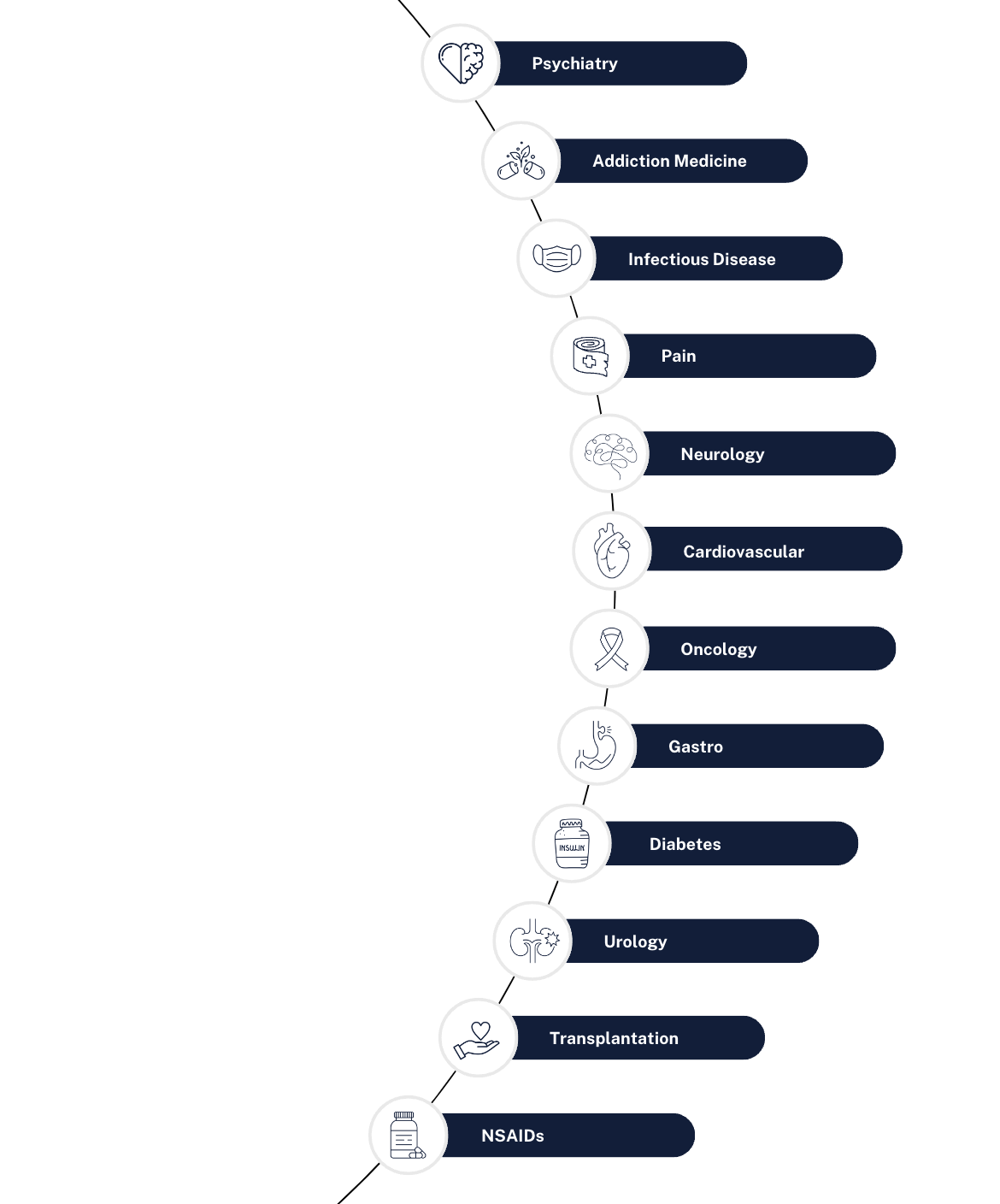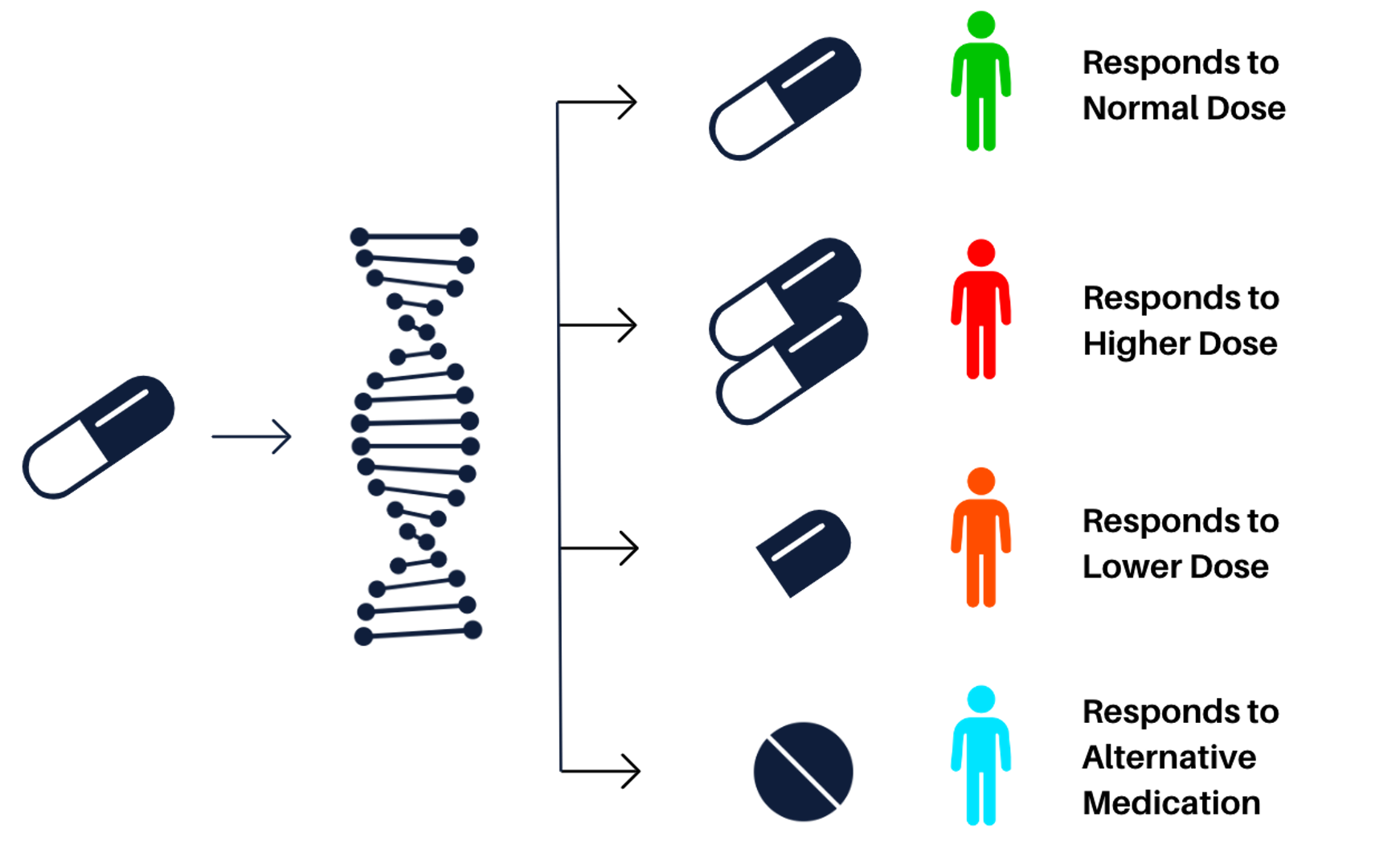Get Started With PGx Testing Today!
Improving Antibiotic Stewardship
Antibiotic stewardship helps reduce inappropriate antibiotic use and improving the use of antibiotics in long term care settings in important considering antibiotic overuse is common. Implementing our personalized medicine program allows nurings homes to become good stewards of antibiotics.
Up to 70% of nursing home residents received antibiotics during a year
CDC
About one-fifth of prescriptions given to elderly patients are inappropriate
Hopkins Medicine
Up to 75 percent of antibiotics prescribed in nursing homes are given incorrectly, meaning either the drug is unnecessary or the prescription is for the wrong drug, dose, or duration.
CDC
Adverse Drug Events cause up to 3.5 billion in excess medical costs every year
US Institute of Medicine
Common Diseases with Drug to Drug Interactions that our PGx Test Includes

Who Should Get A PGx Test?
Residents who are taking 1 or more medications
Residents who are currently experiencing adverse effects or have had serious drug reactions in the past
Residents who are experiencing treatment failures
Facilities that are frustrated with trial-and-error, “one-size-fits-all” prescribing
Facilities that want cutting-edge, personalized medicine

Personalized Medication Genetic Testing
Precision Health Solutions is an expert in personalized medicine to help residents on their path to better health. Our pharmacogenomics (PGx) testing program improves outcomes through precise medication management based on a patients unique DNA. Our goal at PHS is to help you improve the quality of care for your residents, reduce costs and improve staff efficiencies.
Once-in-a-lifetime DNA Test
Reduce Polypharmacy
Decrease Hospitalizations
Reduce Adverse Drug Reactions (ADRs)
Pharmacist Consultation Available
Actionable Medication Treatment Plan
Provider Education
We ensure all staff and providers are fully educated prior to the program implementation
Concierge Collection
Consultation and concierge specimen collection through once-in-a-lifetime DNA saliva swab
Continuing Education
We ensure the program is optimized as residents and staff change
To learn more about getting started with pharmacogenomics, call/text us at 727-235-0886 or email [email protected]
PGx Case Study
Data is based on 189 patients that were tested for pharmacogenomics (PGx) by Precision Health Solutions in the Long Term Care setting

Drug Metabolism
Drug metabolism refers to how quickly one's body processes certain medicines. This can affect whether a medication will work or whether the drug will cause adverse effects.

Poor Metabolizer
A person who is a “Poor Metabolizer” for a medicine will process that medicine very slowly. The medicine might not work if it is processed slowly, or it could put them at risk for side-effects.
Intermediate Metabolizer
A person who is an “Intermediate Metabolizer” for a medicine will process that drug slowly, but not as slowly as a poor metabolizer. This means that the normal dosage of certain medicines may not work for them, or may cause side-effects.
Extensive Metabolizer
A person who is an “Extensive (Normal) Metabolizer” for a medicine usually benefits from the normal dosage of the medicine. This means the metabolizer status does not put them at increased risk for side-effects.
Rapid Metabolizer
A person who is a “Rapid Metabolizer” for a medicine can process the medicine very quickly. A medicine might not work if it is processed very quickly, or it could put the person at risk for serious side-effects.
Traditional Medicine
One-Size-Fits-All Approach - Some Benefit, Some Do Not







